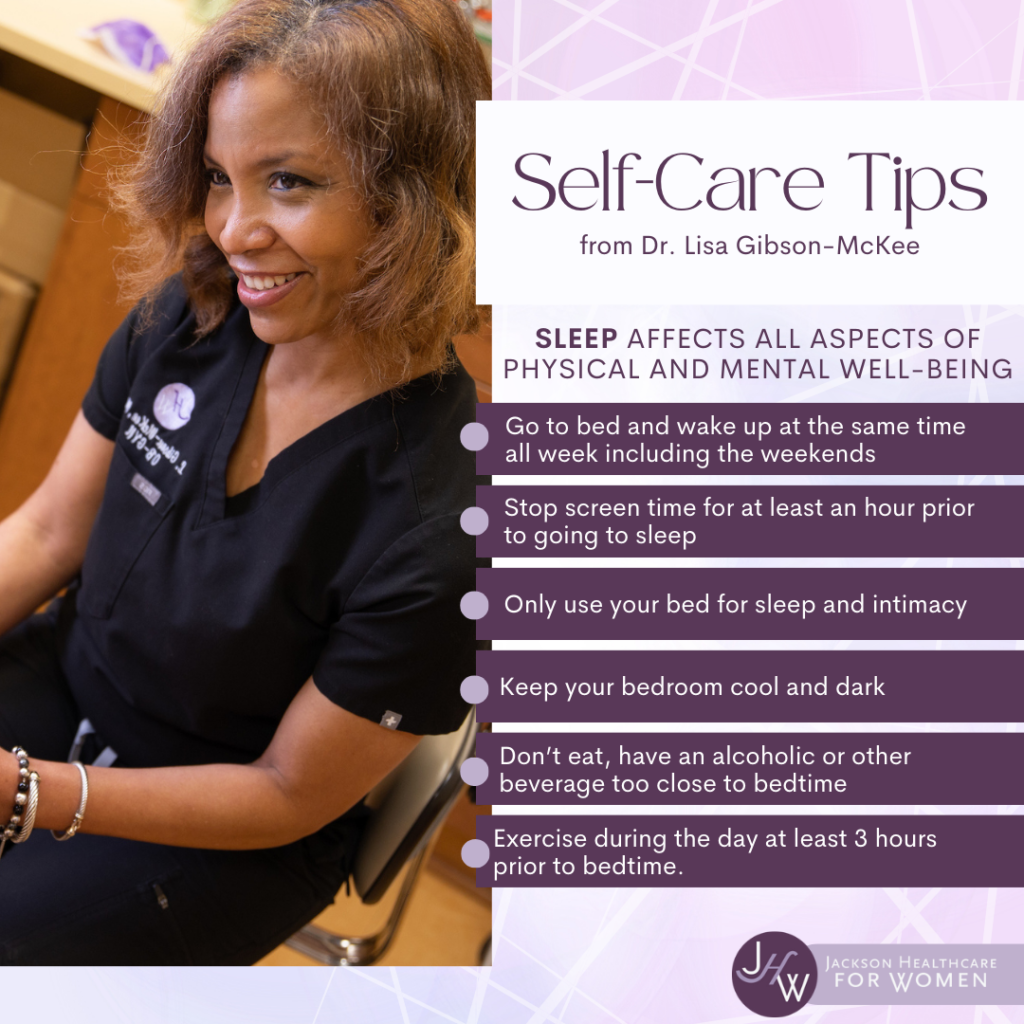It seems like the term “self-care” is everywhere these days, but what does it truly mean? Self-care is a vital component of mental and physical well-being. In a new blog series on the topic, we hope to help define it for you, so you can begin to take steps towards improving well-being and ultimately, your quality of life.
One of the critical pieces of self-care is sleep. Women often put sleep on the back burner because they prioritize their family obligations over their own needs. However, the quality and amount of sleep women get each night affects a woman’s short and long-term health. For example, according to the American College of Obstetricians and Gynecologists (ACOG)[1], most adults need 7 to 8 hours of sleep per night. When you run on a sleep deficit, several aspects of your health can be compromised:
- Physical health—Too little or low-quality sleep may increase your risk of heart disease, kidney disease, high blood pressure, diabetes mellitus, and stroke. Poor sleep also can affect puberty, fertility, and your immune system.
- Daily functioning—Too little or low-quality sleep can cause you to spend more time on tasks, have a slower reaction time, and make more mistakes.
- Safety—Too little or low-quality sleep may cause you to get into an accident while driving or while doing dangerous work or activities.
There are ways to prioritize sleep to improve its quality and benefits. ACOG suggests:
- sleeping only as much as you need to be refreshed during the day
- going to bed and waking up at the same time every day
- avoiding naps during the day
- avoiding caffeine, nicotine, alcohol, and large meals close to bedtime
- exercising regularly (but not right before bedtime)
- making sure your bedroom is not too hot, too cold, or too bright
- removing the TV or computer from your bedroom
- using your bed only for sleep and sex (do not watch TV, listen to the radio, use your phone, or read in
Sleep quality can change during menstruation, pregnancy, postpartum, perimenopause and menopause. You may begin to experience insomnia, hot flashes, and night sweats, all of which negatively impact sleep, so speak with your physician about solutions they may be able to provide for you. In addition, if you suspect you may have a sleep disorder such as obstructive sleep apnea or restless leg syndrome, your physician may be able to help.
Read more on acog.org.
About Jackson Healthcare for Women
Jackson Healthcare for Women is Mississippi’s leading provider of health care services for women. With 15 physicians on staff, Jackson Healthcare for Women is one of the largest and most respected women’s healthcare clinics in the area. Schedule your annual exam or learn about our various preventive health screenings and services by visiting our website at jhcfw.com.
[1] https://www.acog.org/womens-health/faqs/sleep-health-and-disorders, Accessed December 13, 2023.

